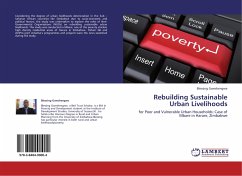This book looks at e-health investment and sustainable e-health business models for the sub Saharan Africa and how the private sector and NGOs are bound to benefit or make their e-health investment sustainable through the concept of low price and high volumes . We have used PESTL model and SWOT analysis framework to analyze e-health markets and we have also used the Business Model Canvas to propose three e-health business models, namely; free, fee and public-private partnership (PPP) models. NPV, IRR and Payback Period methods have been used to examine sustainability. The results show that the latter two would be sustainable at one point in time if innovative revenue streams like fees, VIP membership, subscriptions and health insurance schemes are applied to capitalize on the Bottom of the Pyramid (BoP) approaches.







